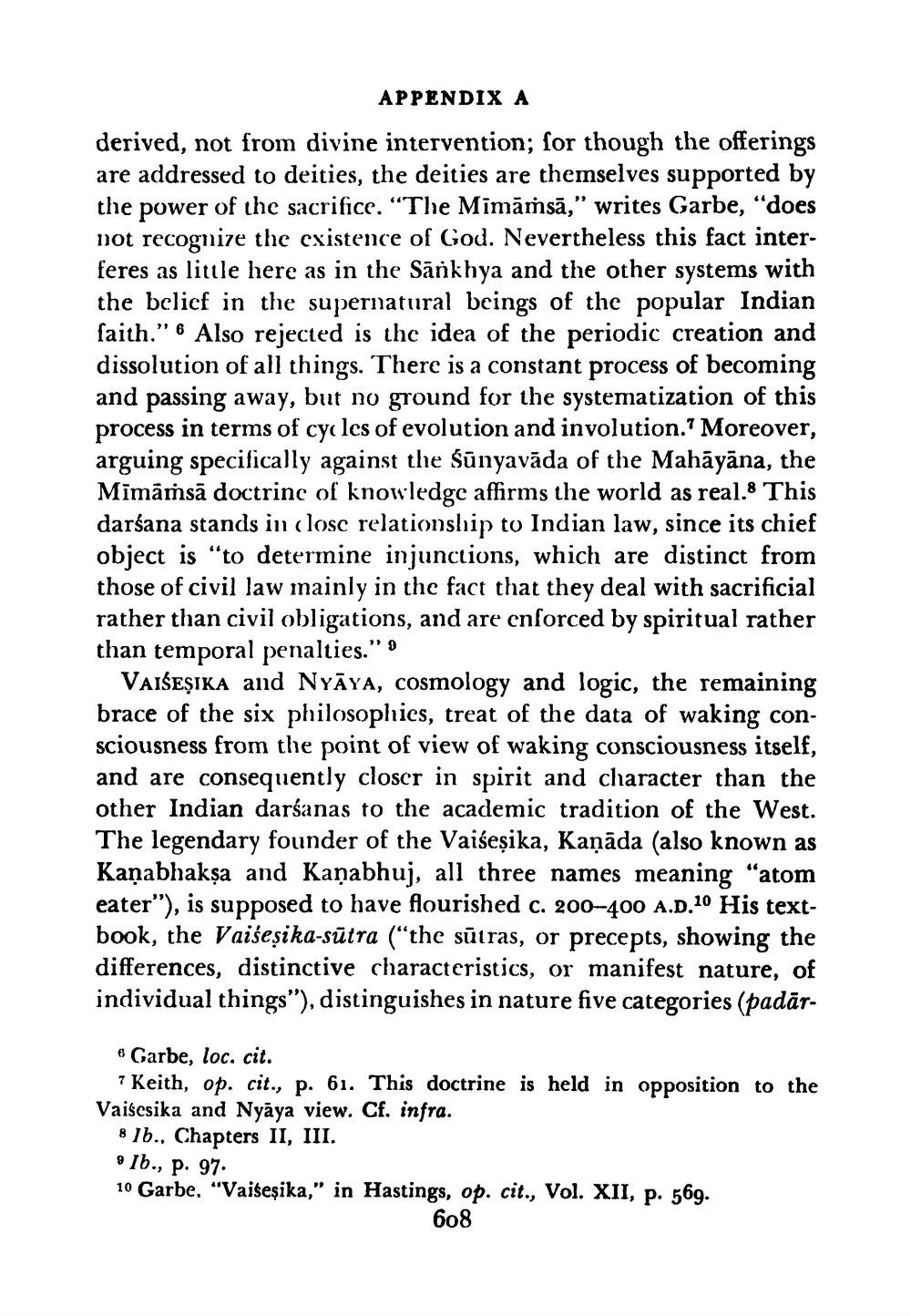________________
APPENDIX A
derived, not from divine intervention; for though the offerings are addressed to deities, the deities are themselves supported by the power of the sacrifice. "The Mimāṁsā," writes Garbe, "does not recognize the existence of God. Nevertheless this fact interferes as little here as in the Sārkhya and the other systems with the belief in the supernatural beings of the popular Indian saith.” 6 Also rejected is the idea of the periodic creation and dissolution of all things. There is a constant process of becoming and passing away, but no ground for the systematization of this process in terms of cycles of evolution and involution. Moreover, arguing specifically against the Śūnyavāda of the Mahāyāna, the Mimāṁsā doctrine of knowledge affirms the world as real. This darśana stands in close relationship to Indian law, since its chief object is "to determine injunctions, which are distinct from those of civil law mainly in the fact that they deal with sacrificial rather than civil obligations, and are cnforced by spiritual rather than temporal penalties." I
VAIŠEŞIKA and NyĀYA, cosmology and logic, the remaining brace of the six philosophies, treat of the data of waking consciousness from the point of view of waking consciousness itself, and are consequently closer in spirit and character than the other Indian darśanas to the academic tradition of the West. The legendary founder of the Vaiseșika, Kaņāda (also known as Kanabhakșa and Kanabhuj, all three names meaning "atom eater"), is supposed to have flourished c. 200-400 A.D.10 His textbook, the Vaiseșika-sūtra (“the sūtras, or precepts, showing the differences, distinctive characteristics, or manifest nature, of individual things"), distinguishes in nature five categories (padār
Garbe, loc. cit. ? Keith, op. cit., p. 61. This doctrine is held in opposition to the Vaiscsika and Nyāya view. Cf. infra.
8 lb., Chapters II, III. 9 lb., p. 97. 10 Garbe. "Vaiseșika,” in Hastings, op. cit., Vol. XII, p. 569.
608




